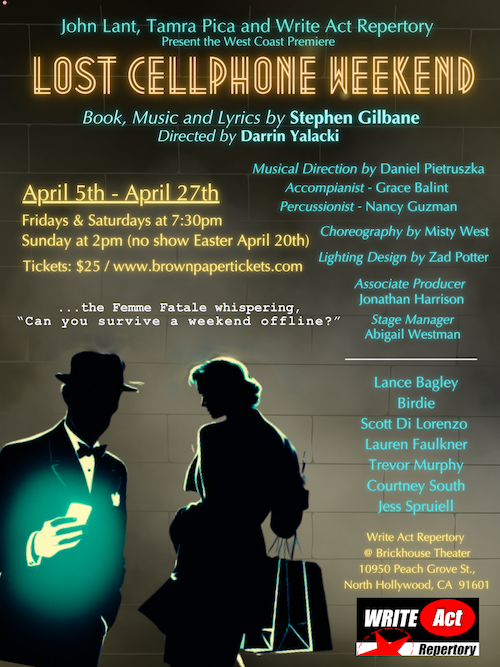Beethoven
Reviewed by Neal Weaver
The Wallis Annenberg Center
Through August 19
RECOMMENDED
Actor/writer/musician/producer/designer/musicologist Hershey Felder is about as close as they come to a modern Renaissance man. He has racked up an impressive array of musical biographies — one-man shows in which he plays noted composers. He has appeared as Chopin, Gershwin, Irving Berlin, Leonard Bernstein, Franz Liszt and Tchaikovsky, employing monologues in which they tell us their stories, accompanied by selections of their music. Now he has turned his attention to Beethoven.
But this time there’s a difference. As narrator, Felder portrays not Beethoven but his friend and admirer, Gerhard von Bruening — though Felder does sometimes speak in Beethoven’s voice. (In the question-and-answer that follows the performance, Felder was asked, “Why the change?” He replied that Beethoven’s deafness had so embittered him — and made him so cantankerous and irascible — that having him narrate his own tale would have produced a piece in which he constantly railed at his audience. (Using a different narrator enabled a more nuanced portrait.)
As a child, Beethoven was savagely and repeatedly beaten by his drunken father which, Felder suggests, may have been the cause of the affliction which left him totally deaf by the age of 31. His deafness was the great tragedy of his life, preventing him from hearing the music he so loved, except in his head. It also provided ammunition to his critics. One benighted writer complained that Beethoven’s magnificent Ninth Symphony was the kind of meaningless cacophony one would expect from a deaf composer.
Von Bruening’s father and Beethoven had been childhood friends, and the boy first encountered the great composer when he was 12 years old. Because of his violent temper and unkempt appearance, Gerhard initially thought he was an importunate derelict. But later he was sent to study with him and became his faithful friend.
Felder sets his piece in a Vienna cemetery at the foot of Beethoven’s tomb, surrounded by the graves of his contemporaries — a gothic touch which serves to remind us that this towering artist was a fierce romantic and iconoclast. (Felder also designed the handsome and moody set.)
Along with his monologue, Felder treats us to a treasure trove of Beethoven’s music, including a set of variations composed when he was just 11 years old, his famous Pathetique and Moonlight sonatas, excerpts from the Eroica Symphony, the Fifth Symphony, the Ode to Joy from the stirring Ninth Symphony, and the much-beloved “Für Elise.” And along the way he includes his notes on the music, details of its creation, and personal comments.
Felder is as skillful as an actor as he is at the keyboard, and director Joel Zwick has melded narration, music, and biographical detail into a seamless dramatic entity. Christopher Ash provided the projections and lighting design, Erik Carstensen supplied the sound design, and the costumes are by Theatr’ Hall, Paris.
Bram Goldsmith Theatre at The Wallis Annenberg Center for the Performing Arts, 9390 N. Santa Monica Boulevard, Beverly Hills. Tues.-Fri., 7:30 p.m., Sat.-Sun., 2 p.m., 7:30 p.m.; through Aug. 19. (310) 746-4000 or www.TheWallis.org/Beethoven. Running time: approximately one hour, with the following question-and-answer session an additional 25 minutes.












